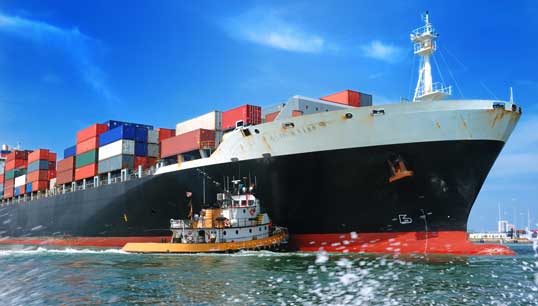US maritime union MM&P seeks Congress help in battle to repatriate Maritime Security Program crews
27 May 2020

The crews of five US-flag containerships are among the thousands of mariners who are essentially being held hostage aboard their vessels because of the breakdown in the crew change process caused by Covid-19, US maritime union MM&P said.
The crews of the five ships operating in the Mediterranean, the Arabian Sea and the Persian Gulf, and all participants in the Maritime Security Program, have been working since December 2019 without reliefs.
The vessels run a 24/7 operation delivering goods that help supply US bases overseas as well as commercial and humanitarian cargo around the world.
MM&P and the other American maritime unions have sought to repatriate their members via major ports including US naval bases in Turkey, Cyprus, Malta, Israel, Egypt, Kuwait, Dubai and Oman but without success.
'These professional mariners are true frontline workers and now is the time to lend a hand to get them home,' MM&P Atlantic Ports vice-president Tom Larkin told the Senate Foreign Relations Committee in a 21 May letter.
'Apart from humanitarian concerns, the global supply chain is at risk,' MM&P president Don Marcus wrote to leaders of the House Transportation and Infrastructure Committee.
He said the situation is particularly difficult to comprehend because US-citizen merchant seafarers are America's fourth arm of defense.
'They are supplying our troops overseas and delivering government cargoes of all sorts, including essential foreign aid to many of the same countries that are preventing their repatriation,' he wrote.
'At the most pragmatic level, how can it be that to date there has been no effective US government intervention to prevent a critical break in the logistical supply chain of our military?'
Mr Marcus has transmitted to Congress a letter drafted by the International Federation of Shipmasters’ Associations, of which MM&P is a member, outlining the magnitude of the global crisis and calling on governments to immediately implement the IMO's crew change protocols.
'Isolation and excessive lengths of service aboard ship have created grave dangers of fatigue and psychological stress, increasing the likelihood of marine accidents, creating mental health risks, including deep depression and, in extreme cases, suicide,' Marcus wrote.
'Seafarers are being abandoned.
'We seek your assistance with the State Department and/or the Department of Defense to ensure that US mariners can be relieved in Middle Eastern ports and, for the greater global crisis, we seek the assistance of the US government to see that foreign seafarers can be similarly relieved and repatriated from US ports.'
Tags
More articles
Unions back ships' officers as governments drag feet over crew changes
An influential grouping of maritime trade unions has publicly raised concerns about unsafe ship operations due to the tiredness and mental health of seafarers caused by extended tours of duty during the Covid-19 pandemic.
Urgent action needed over EU Schengen visas for crew changes
The European Commission and EU Member States must take urgent action to ensure seafarers are admitted into the EU Schengen territory for the purpose of joining their ships or to be repatriated, the European Transport Workers' Federation (ETF) and European Communities of Shipping Associations (ECSA) said.
UN must persuade governments to adopt crew changes or face disaster, global maritime leaders warn
With over 200,000 tired, mentally stretched seafarers stuck on ships across the globe, the international maritime industry is calling on United Nations Secretary General António Guterres to persuade the 193 UN member states to immediately implement the 12-step crew change protocols developed by the International Maritime Organization (IMO).
Singapore seafarers' union helps provide relief during Covid-19 pandemic
Nautilus affiliate seafaring union the Singapore Organisation of Seamen (SOS) is helping provide a seafarer relief package (SRP) for members adversely affected by the Covid-19 pandemic.
